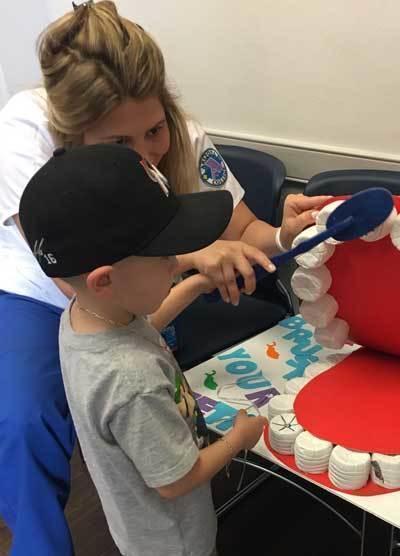What is a Pediatric Nurse?

Where Pediatric Nurses Work
You can pursue a pediatric nursing career in any setting, including clinics, general hospitals, children’s hospitals, doctor’s offices, and schools. Social services agencies, government agencies, and home healthcare agencies that serve children may also hire pediatric nurses. Pediatric nursing professionals may even provide health services and education at community and school health events. Typically, pediatric nurses work with a healthcare team who also specialize in pediatrics or family medicine.
Types of Pediatric Nurses
RNs may choose from many pediatric nursing specialties. In hospitals, for example, a pediatric nurse may work in:
- General care for children with a variety of acute and chronic conditions
- Critical care for children with critical or life-threatening conditions
- Intermediate care for children who recently left critical care or are in a condition between critical and general care. In this role, nurses watch closely for early signs that an illness is worsening and are prepared to intervene quickly.
- Rehabilitation for children preparing to return to their home, community, and school and manage any remaining health issues.
Other types of pediatric nursing specialties include:
- Oncology
- Cardiology
- Gastroenterology
- Neurology
- Endocrinology
What Do Pediatric Nurses Do?
Depending on their specialty, a pediatric nurse may care for children dealing with everything from the common cold to broken bones to life-threatening illnesses. Throughout their work, they rely on expertise in childhood development, growth, and health issues.
Conducting routine health care check-ups is a common task in general pediatric care. For these visits, a nurse does a physical assessment and records the patient’s vital signs, height, weight, and other milestones to check on current health and developmental progress. Other pediatric nurse responsibilities include:
- Caring for acutely, chronically, or critically ill children
- Administering vaccines and immunizations
- Performing routine developmental screenings
- Interpreting laboratory and diagnostic tests results
Education is another key component of the job. Pediatric nurses educate parents on how to promote health and how to care for illnesses in children. In particular, pediatric nurses work closely with parents and caregivers of children with chronic illnesses or disabilities to ensure their child’s needs are met.
Pediatric Nurse Requirements
A good pediatric nurse is strongly committed to child and family health. They think quickly and keep calm under pressure, not letting young patients see their stress or worry.
Strong communication and relationship skills are essential for interacting with parents, children, and other medical care professionals (e.g. primary care pediatricians, pediatric specialists). For starters, pediatric nurses must ease the fears and gain the trust of scared and nervous children. They also need to adjust interactions with their young patients by age and developmental level, asking questions in a way that helps them get important information from children. For both parents and children, pediatric nursing professionals answer many questions and explain illnesses, treatments, and medications. They aim to collaborate with parents in providing care, thus utilizing parents’ expert knowledge of their children.
How to Become a Pediatric Nurse
Before becoming a pediatric nurse, you’ll need to earn a nursing degree and become an RN. We recommend attending a nursing school with a Bachelor of Science in Nursing (BSN) degree program, so that you’re equipped with a broad skill set and prepared for future nursing career advancement opportunities.
As an RN, you’ll want to find a job somewhere with pediatric patients. While a BSN degree can provide a solid foundation for pediatric nursing care, many organizations also offer additional training that can help you learn more knowledge about caring for children.
With experience in pediatric nursing, you can qualify to sit for a certification exam through the Pediatric Nursing Certification Board or the American Nurses Credentialing Center. Nursing certification can help you increase your salary and gain a competitive edge in the field.
Get on the Path to Becoming a Pediatric Nurse
At Arizona College, you can start working on your goal of becoming a pediatric nurse by earning your BSN degree in just three years. Request information today to learn more about our BSN nursing degree program offered in Tempe, Las Vegas, and Dallas.
Information in this blog post is accurate as of December 5, 2018.
